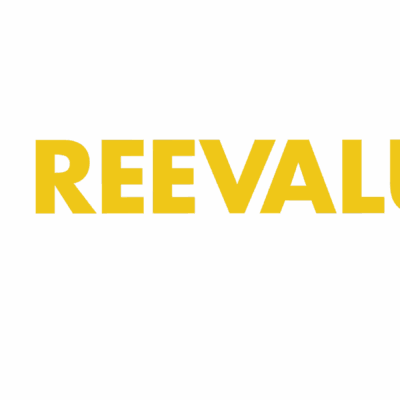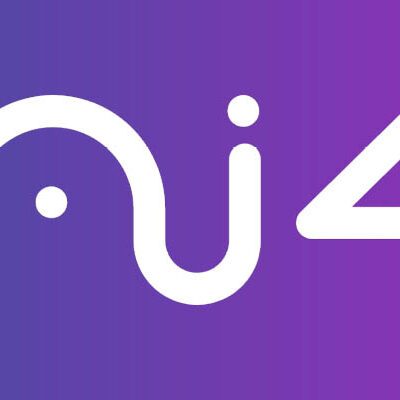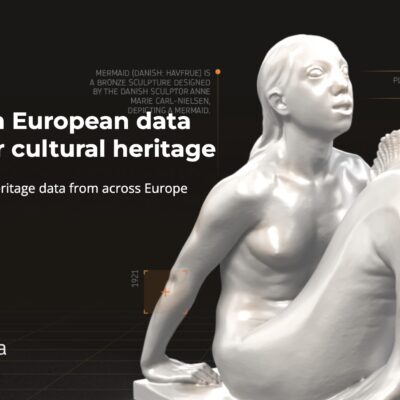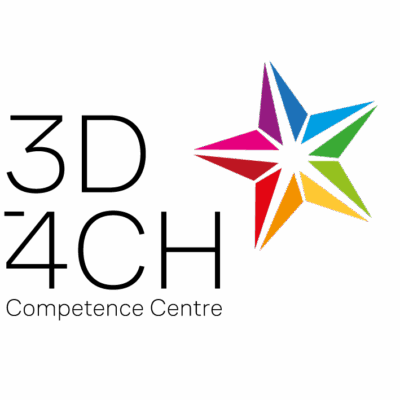
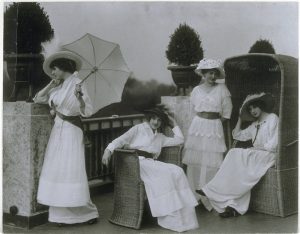 Frauen in Kleidern, Wilhelm Willinger, 1914. Courtesy Kunstbibliothek, Staatliche Museen zu Berlin, CC BY NC SA
Frauen in Kleidern, Wilhelm Willinger, 1914. Courtesy Kunstbibliothek, Staatliche Museen zu Berlin, CC BY NC SA
Throughout the 20th century, Europe underwent drastic social, political and economic alterations. From changes in political regimes and battles for civil rights to the growth of entertainment industries, fashion trends and advances in technology. These changes were documented in photographs, moving images, paintings and documents, which now form part of Europe’s rich cultural heritage. Online access to these resources offers a unique opportunity to better understand the present by learning from the past.
In the “Europeana XX – Century of Change” project, co-funded by the EC under the CEF-Telecom program, EFHA partnered with other four major domain and thematic aggregators (EUscreen, European Film Gateway, Photoconsortium, and Judaica Europeana) and together with technology partners and the Europeana Foundation will use digital cultural heritage to highlight societal changes in Europe throughout the 20th century, fostering dialogue and reflection on topics at the core of contemporary European history through the curation and publication on the Europeana platform of a series of carefully crafted editorial output, notably online exhibitions, galleries (like this one on “Travelling in Style”) and blog series (like this piece on travelling gear for globetrotters). On top of that, the project will organise a series of events and activities addressing the topic of societal change in various contexts and with different focal points, reaching out to a diverse audience.
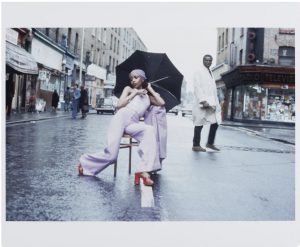 Photograph by Armet Francis, ‘Fashion Shoot, Brixton Market’, C-type print, 1973, printed 2012. Courtesy Victoria and Albert Museum, CC BY
Photograph by Armet Francis, ‘Fashion Shoot, Brixton Market’, C-type print, 1973, printed 2012. Courtesy Victoria and Albert Museum, CC BY
In the project framework, EFHA will contribute 75.000 new high-quality records to be added to Europeana and already published content will be opened up to allow free reuse and enable educators, researchers and creative industries to discover new narratives, conduct research and create new works. Societal impact and wide audience engagement will be achieved through an integrated on-line and on-site editorial and outreach strategy that will include subtitle-a-thons and travelling pop-up exhibitions that will offer citizens novel ways to actively engage with European heritage.
The project will also develop and test smart tools that will support curators and Cultural heritage institutions in the selection of relevant material on Europeana for its reuse in editorial content, and EFHA will supervise and coordinate the enrichment of more than 2 million records in Europeana that will be made better accessible and discoverable via machine translation and semantic enrichment techniques.
Project Partners
- Netherlands Institute for Sound and Vision (NL)
- European Fashion Heritage Association (IT)
- Europeana Foundation (NL)
- Istituto Luce - Cinecittà (IT)
- The National Film Archive - Audiovisual Institute (PL)
- Deutsches Filminstitut & Filmmuseum (DE)
- Catwalkpictures (BE)
- Katholieke Universiteit Leuven (BE)
- Photoconsortium (IT)
- Jewish Historical Museum (NL)
- Jewish Historical Network (NL)
- National Technical University of Athens (GR)
- Pangeanic (ES)
- Technische Informationsbibliothek (DE)
- Anacode (DE)
- Thinkcode (CY)
- Noterik B.V (NL)
